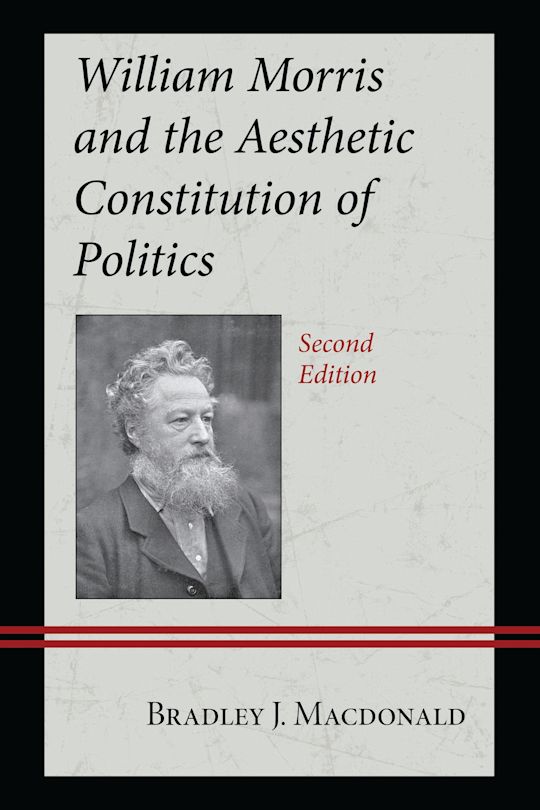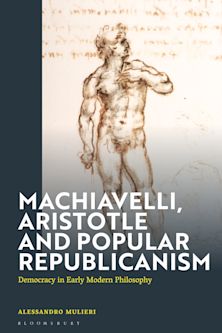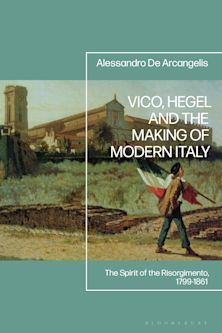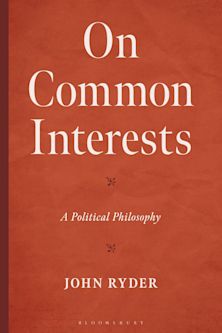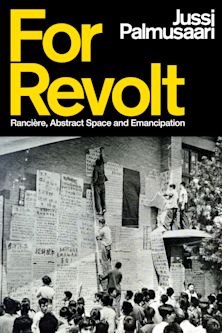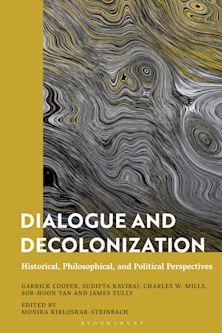- Home
- ACADEMIC
- Politics & International Relations
- Political Theory and Philosophy
- William Morris and the Aesthetic Constitution of Politics
William Morris and the Aesthetic Constitution of Politics
William Morris and the Aesthetic Constitution of Politics
This product is usually dispatched within 1 week
- Delivery and returns info
-
Free CA delivery on orders $40 or over
You must sign in to add this item to your wishlist. Please sign in or create an account
Description
While William Morris (1834-1896) is generally considered one of the most important cultural and political figures of late Victorian England, there is avid disagreement on the way in which we can understand the interconnections between his aesthetic commitments (as a celebrated poet and decorative artist influenced by Pre-Raphaelitism and Aestheticism) and his later revolutionary socialist advocacy. As opposed to dominant interpretations within Morris scholarship, Bradley J. Macdonald argues for the importance of understanding the role a “critical notion of beauty” had in moving Morris toward a theory of socialism that took seriously the way in which desire, pleasure, and “beauty” (as applied to all externals of human life, not just art works) could be regenerated only through radical transformations in socioeconomic life. Consequently , William Morris's development represents an interesting example of cultural politics. Given this genealogy, Macdonald clarifies, Morris's mature political theory incorporated a very important commitment to not just economic justice, but also, among other distinctive applications ; ecological sustainability, making him one of the first eco-socialist theorists within the Western tradition, and also an early proponent of what is today known as “degrowth communism.”
Table of Contents
Ecosocialism, and Political Action
Introduction to the First Edition (1999)
Chapter One: The Question of Cultural Politics
Chapter Two: The Great Exhibition and the Class Politics of Art
Chapter Three: Towards a Political Economy of Art: John Ruskin and the Representation of
Labor in Aesthetic Theory
Chapter Four: Constituting the Aesthetic Self: Medievalism, Pre-Raphaelitism, and Morris's
Early Aesthetic Education
Chapter Five: Aesthetic Theory and Political Subjectivities: Morris's Lectures on Art
Chapter Six: The Political Theory of William Morris: Revolutionary Socialism, Utopian
Practicalities, and the Beauty of Life
Conclusion: Morris and Western Marxism
Product details
| Published | Nov 08 2024 |
|---|---|
| Format | Hardback |
| Edition | 2nd |
| Extent | 242 |
| ISBN | 9781666976045 |
| Imprint | Lexington Books |
| Dimensions | 229 x 152 mm |
| Publisher | Bloomsbury Publishing |
About the contributors

ONLINE RESOURCES
Bloomsbury Collections
This book is available on Bloomsbury Collections where your library has access.








